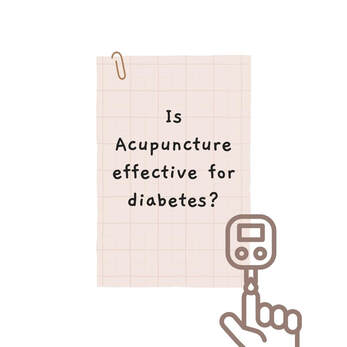 Diabetes is one of the most prevalent chronic diseases in the US and cases are rising at an alarming rate. As of 2020, over 10% of the U.S. population have diabetes (this is up from about 6% in 2000 , and prevalence is also expected to double in the next 20 years). 95% of those cases are type 2. Because of this, a lot of the conversation around diabetes as a chronic health issue is referring to type 2 diabetes and it’s defining culprit: insulin resistance. Insulin resistance can be understood as the ineffective use of insulin in the body leading to poor control of blood sugar and is usually associated with excess body weight. Until recently it was generally only seen in adults, but more and more children are diagnosed every day due to poor diet and inactivity. This metabolic syndrome can lead to vascular issues, neuropathy, and kidney problems. In fact, diabetes type 2 is associated with a 2 to 3-fold risk of heart attacks and stroke. Other complications include blindness and lower limb amputation. In 2019, it was the 9th leading cause of death with 1.5 million deaths directly caused by diabetes. Modern approaches are mainly drug-based though any successful management program will include diet and lifestyle changes. Metformin is the drug of choice for most as it reduces the amount of sugar the liver releases into your blood, while also helping the body to respond better to insulin (the hormone responsible for bringing sugar into the cell and out of the blood). A1C is the typical blood-test used to gauge a person's average blood sugar and treatment progress. Currently, with western treatment, only about 50% of people reach their A1C target , which clearly leaves some room for improvement and alternative therapies. So, what about acupuncture? There is definitely a need for more research and prospective studies are continuously designed and await funding, but so far the established research is very promising. In a 2018 study of 90 rats, it was found that within 3 weeks, diabetic rats that received electroacupuncture at specific acupuncture points had lower glucose levels, increased insulin levels and improved glucose tolerance. Acupuncture also shows significant benefit as an adjunctive therapy to pharmaceutical treatment. In 2015, an article published in Acupuncture in Medicine reviewed studies using rats in which scientists combined electroacupuncture with metformin. It was found that the combination of metformin and acupuncture offered better glucose lowering effects and greater insulin sensitivity when compared with metformin alone. Acupuncture has also been shown to assist in weight loss while reducing blood sugar levels in type 2 diabetes patients. Sanming County Hospital of Integrated Medicine researchers (Fujian) conducted a clinical trial of obese patients diagnosed with type 2 diabetes. A group receiving “routine care” (metformin plus lifestyle guidance) was compared with another group receiving routine care plus regular acupuncture. Although weight loss was statistically significant for both groups, reductions were significantly greater in the acupuncture group as measured by BMI (Body Mass Index). One of the top complaints doctors and acupuncturists alike hear from patients with diabetes type 2 is neuropathy (weakness, numbness and pain, usually in the hands and feet). This is because, over time, uncontrolled blood sugar damages the nerves. Studies also show that acupuncture can be very effective in easing the suffering from such complications. In a review of 13 random controlled trials looking at acupuncture and various types of neuropathy, the majority showed benefit in the treatment of diabetic neuropathy. Acupuncture takes the approach of bringing the individual body back into balance with itself and the environment, so each person’s treatment will be based on a customized plan. TCM (Traditional Chinese Medicine) offers personalized diet and lifestyle guidance towards this aim as well. Given the growing prevalence of this metabolic disorder and the limitations of modern treatment, acupuncture should be a consideration for anyone concerned with prevention and/or treatment of this disease. Acupuncture is a cost-effective way to support the body’s metabolism whether or not diabetes is a concern. Call today to set yourself up with some energy-boosting treatments that can help to regulate hormones and strengthen digestive function! |
AuthorsRebecca M H Kitzerow is a Licensed Acupuncturist practicing in La Center, Washington. With over a decade of experience she has won 10 Nattie consumer choice awards from Natural Awakenings Magazine since 2014. Archives
July 2024
Categories
All
|
Photos from Hey Paul Studios, BeGreen_Studio, Pawel Pacholec, 1950sUnlimited, toulupaliaqaz, Joelk75, OnTask, Robert Gourley, cnu_sports, Mitya Ku, wuestenigel (CC BY 2.0), FootMassagez, 401(K) 2013, Mariana Heinz, @EdwardTerry, fishhawk, liverpoolhls, torbakhopper, Boemski, dolomitibl, Driscolltheque, Dave n Laura, Vaping360, MVWorks, Life Mental Health, MVWorks, mikefats, Scot Nelson, jfl1066, wZa HK, ruurmo, Guadalupe Cervilla, Army Medicine, GViciano, torbakhopper, adrigu, Saulo Cruz, Ben Cumming, marniejoyce, kcxd, JasonCorey, kanenas.net, Live to Create Photography, gm.esthermax, Unique Hotels Group, Zenspa1, mysiana, Tobias Lindman, Leader Nancy Pelosi, Kristoffer Trolle, swanksalot, Bill Selak, Parker Knight, stimpsonjake, Gedankensprudler, SuperFantastic, tonynetone, marniejoyce, JeepersMedia, Illusive Photography, 'Ajnagraphy', Iban Torras, scotted400, gtall1, dvanzuijlekom, BPPrice, Skley, torbakhopper, Renato Ganoza, anka.albrecht, QUOI Media, Public Domain Photos, Instant Vantage, Victor Tongdee, Free Grunge Textures - www.freestock.ca, sportEX journals, Nadja Tatar, angela n., marniejoyce, MVWorks, Karolina Kabat, Thomas Fisher Rare Book Library, UofT, ginnerobot, tracilawson, haven't the slightest, My Photo Journeys, Pierre Willemin, Florena_Presse, SuperFantastic, colindunn, zzkt, TraumaAndDissociation, ER24 EMS (Pty) Ltd., shixart1985 (CC BY 2.0), marniejoyce, Tomás Fano, freestock.ca ♡ dare to share beauty, Archives New Zealand, Jaykhuang, airdrie.m, Go-tea 郭天, OnTask, wuestenigel, focusonmore.com, Disney | ABC Television Group, Andrew Gustar, Didriks, ConstructionDealMkting, charlywkarl, barnimages.com, Lel4nd, runwaypilates, michaelstephanfotografie, McLevn, TraumaAndDissociation, eLife - the journal, Lars Plougmann, wuestenigel, shixart1985, boviate, davis.steve32, kevin dooley, @the.photoguy (insta), frederic.gombert, Feathering the Nest, Victor Tondee, shixart1985, wuestenigel, Joe K Gage, kennethkonica
 RSS Feed
RSS Feed
